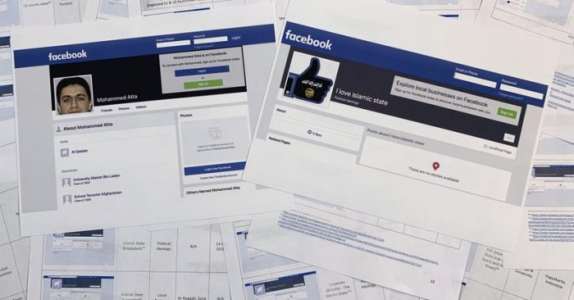
Facebook accused of helping promote Islamic State and al-Qaida
Facebook has faced several complaints about its functions that inadvertently help promoting extremist groups Islamic State and al-Qaida, but the company appears to have made little progress on the issue.
The National Whistleblower Center, in an effort to hold Facebook accountable for criminal activity, has updated its complaint showing almost 200 auto-generated pages that directly reference the Islamic State group and dozens more representing al-Qaida and other known groups. One page is dubbed “I love Islamic state,” and another page for “Mohammed Atta” with an iconic photo of one of the al-Qaida members, who was a hijacker in the Sept. 11 attacks, according to the Associated Press (AP).
The updated complaint detailed tools providing a list of sympathizers for recruiters, and introducing thousands of Islamic State of Iraq and the Levant (ISIL) extremists to one another.
In 2018, the social media giant was blamed for actively connecting jihadis around the world, allowing them to beef up fresh terror networks and even recruit new members.
Gregory Waters, one of the authors of an extensive report by the Counter Extremism Project, calling on tech companies to remove known extremist and terrorist material online, said the project “has laid bare Facebook’s inability or unwillingness to efficiently address extremist content on their site,” according to the Telegraph.
He recalled how he was inundated with suggestions for pro-ISIL friends, after making contact with one active extremist on the site.
“The failure to effectively police its platform has allowed Facebook to become a place where extensive IS supporting networks exist, propaganda is disseminated, people are radicalized, and new supporters are recruited,” Waters added.
Terrorism expert Dr. Solahudin from the University of Indonesia uncovered a disturbing trend after interviewing 75 convicted terrorists in Indonesia in 2017. He said that social media plays a role as an agitator and speeds up the radicalization process.
“As many as 85 percent of those convicted say that from the time they were first exposed to [materials about] Islamic State to them committing an act of terror was less than one year,” he wrote.
A woman named Azka in Indonesia asked “friends” an incendiary question on her Facebook page: “To all FB friends, is there anyone who sells bombs? I want to buy.”
“I’m tired of life,” she added. Another friend suggested she could make her own device with instructions found on YouTube.
Facebook said it has banned 200 white supremacist organizations and 26 million pieces of content related to global extremist groups.
“Our priority is detecting and removing content posted by people that violates our policy against dangerous individuals and organizations to stay ahead of bad actors. Auto-generated pages are not like normal Facebook pages as people can’t comment or post on them and we remove any that violate our policies. While we cannot catch every one, we remain vigilant in this effort,” a Facebook spokesperson told the AP.
The social networking company will be questioned by U.S. senators on the Committee on Commerce, Science, and Transportation on Wednesday.
Source: The Bl





